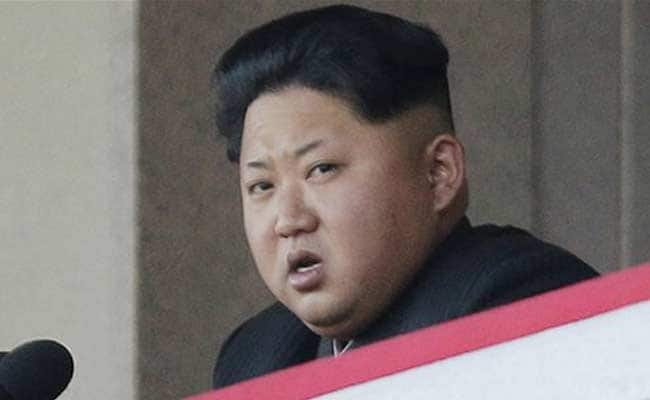
Park had earlier slammed Wednesday's test -- personally ordered by North Korean leader Kim Jong-Un -- as a "grave provocation" to national security. (AP Photo)
Seoul:
The US and South Korean presidents vowed today to impose the "most powerful and comprehensive" sanctions on North Korea after its globally condemned fourth nuclear test.
North Korea said on Wednesday it had successfully tested its first hydrogen bomb, triggering international concern and anger from countries including the US and Japan, and even its sole major ally China.
President Barack Obama and his South Korean counterpart Park Geun-Hye held a 20-minute phone conversation Thursday morning, Park's presidential office said in a statement.
"President Obama stressed the need for the most powerful and comprehensive sanctions and said he would closely coordinate with the South to achieve the goal," the statement said.
"The two leaders also ... agreed that the North should pay the appropriate price for the latest nuclear test and vowed to closely cooperate to have a strong resolution adopted at the UN Security Council," it added.
Park had earlier slammed Wednesday's test -- personally ordered by North Korean leader Kim Jong-Un -- as a "grave provocation" to national security and urged a "strong" international response.
A hydrogen, or thermonuclear, bomb uses fusion in a chain reaction that results in a far more powerful explosion than the fission blast generated by uranium or plutonium alone.
Experts said the yield from Wednesday's test was far too low for a genuine H-bomb, but it still marked a defiant violation of existing UN resolutions.
The UN Security Council agreed Wednesday to roll out new measures to punish the North and vowed to begin work on a new UN draft resolution that would contain "further significant measures."
But the North is already under layers of sanctions imposed following its past missile launches and three nuclear tests, and analysts have questioned what real impact fresh penalties will really have.
North Korea said on Wednesday it had successfully tested its first hydrogen bomb, triggering international concern and anger from countries including the US and Japan, and even its sole major ally China.
President Barack Obama and his South Korean counterpart Park Geun-Hye held a 20-minute phone conversation Thursday morning, Park's presidential office said in a statement.
"President Obama stressed the need for the most powerful and comprehensive sanctions and said he would closely coordinate with the South to achieve the goal," the statement said.
"The two leaders also ... agreed that the North should pay the appropriate price for the latest nuclear test and vowed to closely cooperate to have a strong resolution adopted at the UN Security Council," it added.
Park had earlier slammed Wednesday's test -- personally ordered by North Korean leader Kim Jong-Un -- as a "grave provocation" to national security and urged a "strong" international response.
A hydrogen, or thermonuclear, bomb uses fusion in a chain reaction that results in a far more powerful explosion than the fission blast generated by uranium or plutonium alone.
Experts said the yield from Wednesday's test was far too low for a genuine H-bomb, but it still marked a defiant violation of existing UN resolutions.
The UN Security Council agreed Wednesday to roll out new measures to punish the North and vowed to begin work on a new UN draft resolution that would contain "further significant measures."
But the North is already under layers of sanctions imposed following its past missile launches and three nuclear tests, and analysts have questioned what real impact fresh penalties will really have.
Track Latest News Live on NDTV.com and get news updates from India and around the world

